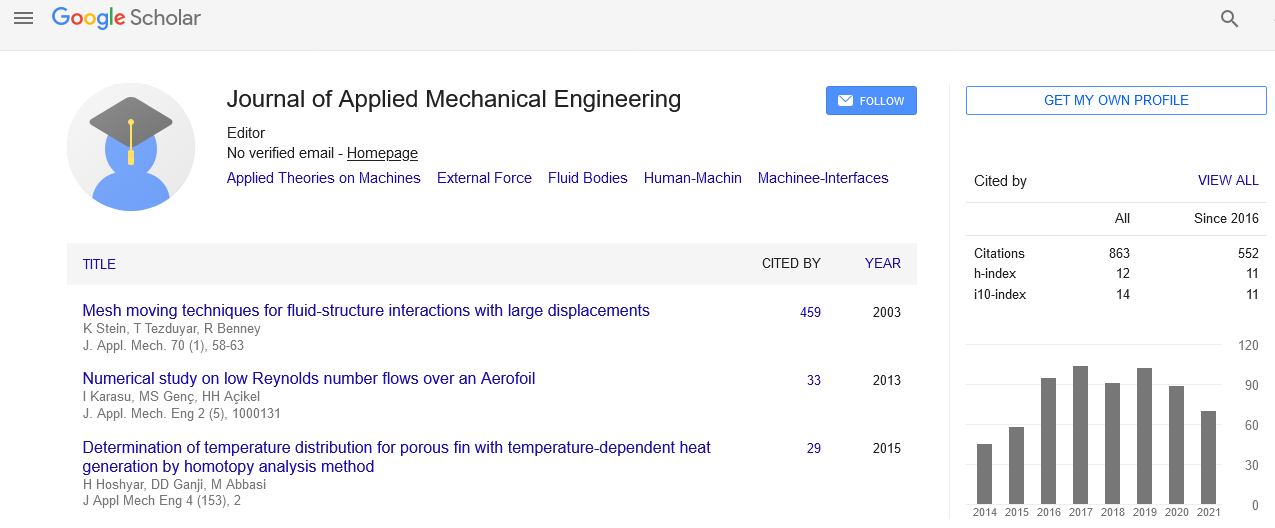Indexed In
- Genamics JournalSeek
- JournalTOCs
- CiteFactor
- RefSeek
- Hamdard University
- EBSCO A-Z
- OCLC- WorldCat
- Publons
- Google Scholar
Useful Links
Share This Page
Journal Flyer

Open Access Journals
- Agri and Aquaculture
- Biochemistry
- Bioinformatics & Systems Biology
- Business & Management
- Chemistry
- Clinical Sciences
- Engineering
- Food & Nutrition
- General Science
- Genetics & Molecular Biology
- Immunology & Microbiology
- Medical Sciences
- Neuroscience & Psychology
- Nursing & Health Care
- Pharmaceutical Sciences
On the tailored forming of massive components: A hybrid shaft example
International Conference on Design and Production Engineering
July 25-26, 2016 Berlin,Germany
Deniz Duran, Bernd-Arno Behrens, Anas Bouguecha, Conrad Frischkorn and Adis Huskic
Leibniz University of Hanover, Germany
Scientific Tracks Abstracts: J Appl Mech Eng
Abstract:
Towards the challenge of promoting the resource efficiency, lightweight high performance components gain importance mainly in the automotive and aviation industry. However, the inevitable trade-off between strength and weight is a limiting factor in design and implementation. Load adapted tailored components with locally varying properties stands for a solution to this problem. In sheet forming industry, use of tailored blanks has increased notably in the last two decades, whereas utilisation of such concept is relatively new to bulk forming industry. At Leibniz Universität Hannover, Collaborative Research Centre (CRC1153) has been established to research possibilities for suitable process chains to manufacture massive hybrid components. The process chain involves manufacturing processes of joining, forming, heat treatment and machining. The interface between the two materials is referred to as joining zone whose characteristics are decisive in the performance of the manufactured component. In this study, processing of a bi-material hybrid shaft by tailored forming is covered. First of all, the process chain is given as an overview. In the following, strategies for the treatment of the joining zone by forming and approaches for induction heating of the semi-finished work pieces will be discussed.
Biography :
Deniz Duran has received his MS degree in Manufacturing Engineering in 2014 from Atilim University. He has been working as a scientific co-worker at Institute of Forming Technology and Machines of Leibniz Universität Hannover since 2015. His research interests mainly include modelling and experimentation of metal forming processes and manufacturing tribology.
Email: duran@ifum.uni-hannover.de

